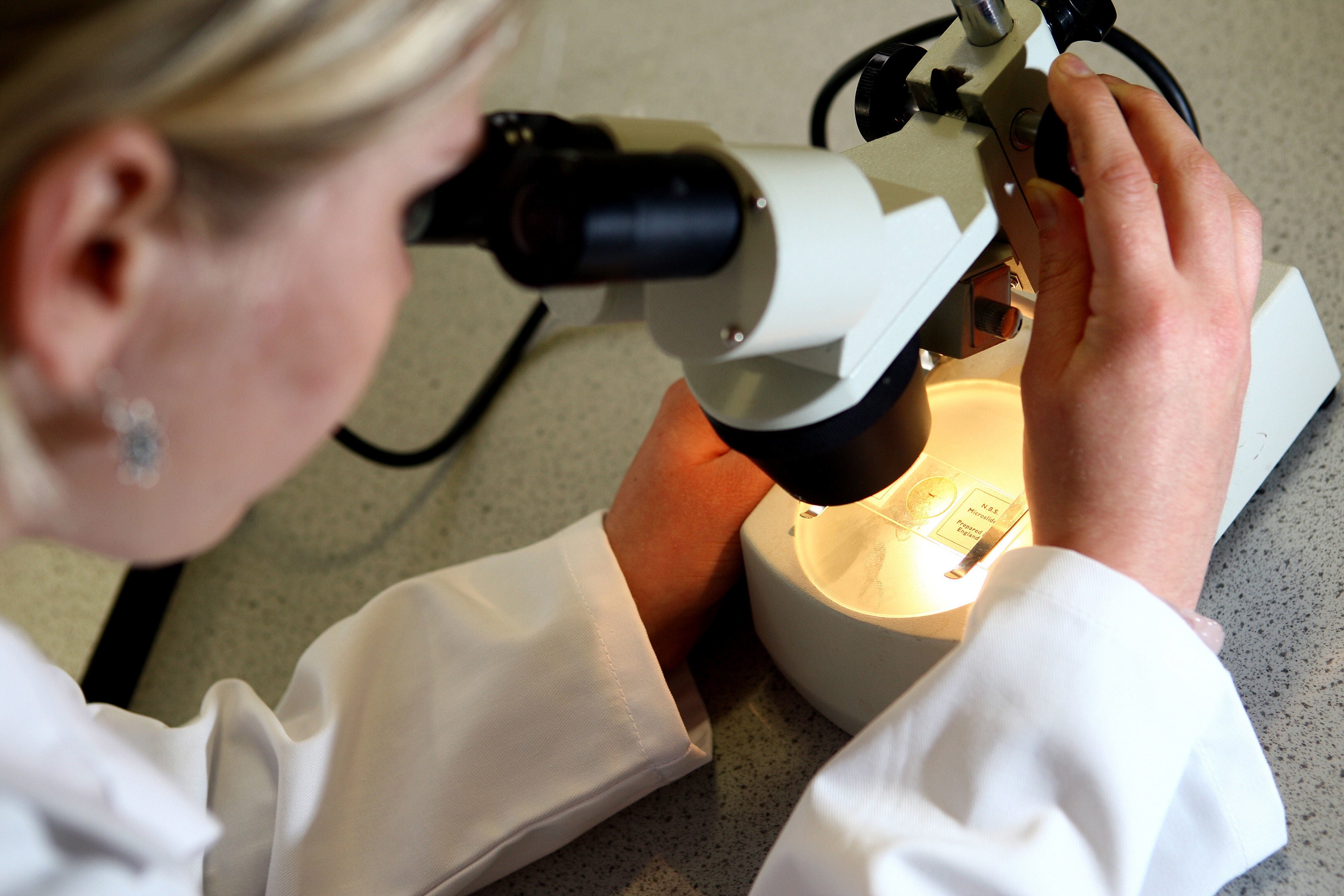Scientists identify ‘hugely exciting’ new drugs that could lead to cancer treatments
Scientists at the Institute of Cancer Research and pharmaceutical company Artios have identified a new class of medicine that could lead to treatments of even drug-resistant cancers, Joanna Taylor reports

A new class of drugs that could be used to treat some forms of breast, ovarian and prostate cancer has been identified.
The drugs, known as POLQ inhibitors, appear to work against cancer cells that have become resistant to existent treatment, according to a study published in Nature Communications.
Although at the preclinical trial phase, the drugs offer hope to thousands of patients whose cancer is caused by a mutation of the BRCA gene, which suppresses tumours when working normally.
Dr Simon Vincent, director of research at Breast Cancer Now, said that the study is “hugely exciting”.
“Men and women with a change in one of their BRCA genes are at greater risk of being diagnosed with breast cancer,” he said.
“Around 5 per cent of the 55,000 cases of breast cancer diagnosed in the UK each year are caused by an inherited altered gene, which includes BRCA1 and BRCA2 genes.
“It’s therefore hugely exciting that POLQ inhibitors could provide a targeted treatment option for people whose cancer is caused by altered BRCA genes.”
Study co-leader Chris Lord, professor of cancer genomics at the Institute of Cancer Research (ICR), said that the new class of drugs “strips cancers of their ability to repair their DNA”.
They could, therefore, “be effective against cancers which already have weaknesses in their ability to repair their DNA” through defects in their own BRCA genes, he said.
“And excitingly, the new drugs also seem to work against cancer cells that have stopped responding to an existing treatment called PARP inhibitors – potentially opening up a new way of overcoming drug resistance,” Professor Lord added.
Scientists at the ICR and pharmaceutical company Artios have so far tested the drugs on lab-grown cancer cells and rats.
But further trials are needed to ensure that the drugs are safe and effective for humans.
The preclinical findings provide a “clear rationale” for further investigation, study co-leader Dr Dr Graeme Smith, chief scientific officer at Artios Pharma, Cambridge, said.
He added that Artios are on track to undertake clinical trials to explore POLQ inhibition before the end of the year.
Join our commenting forum
Join thought-provoking conversations, follow other Independent readers and see their replies
Comments
Bookmark popover
Removed from bookmarks